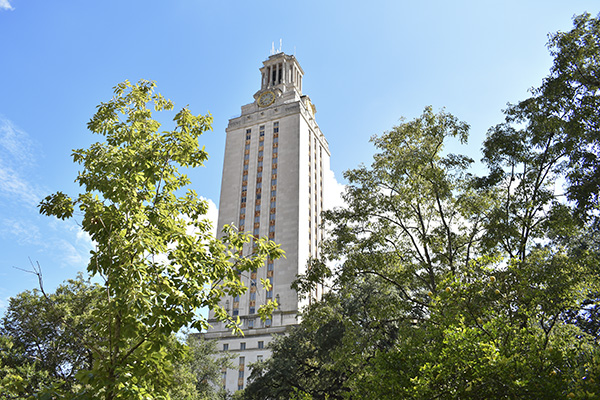UT-Austin establishes new post-graduate fellowship to increase faculty diversity
July 19, 2021
Editor’s Note: This article first appeared as part of the July 12 flipbook.
UT-Austin started its inaugural postdoctoral fellowship in June aiming to increase diversity among campus faculty by providing an opportunity for full-time faculty positions after program completion.
“We have been trying to make sure that our faculty demographics or population is as diverse as possible,” said Edmund T. Gordon, vice provost for diversity and an associate professor for the African Diaspora Studies and Anthropology department. “So we worked with a number of different options for trying to develop a postdoctoral program that would help us in this area.”
The Office of the Executive Vice President and Provost manages the fellowship and began the first class with 26 fellows from different departments on campus including nursing, Mexican American and Latinx Studies, government and astronomy.
While the fellowship is an important step to increasing faculty diversity, Gordon said UT-Austin is also one of the last tier-one research institutions to adopt a program like this.
“A majority of us are underrepresented minorities,” said Mykel Green, a biomedical engineering fellow. “We’re going to try and tackle different problems that need to be addressed within the Austin community and the world that are related to social and economic problems or health disparities, or just trying to bring the voice of people who sometimes are not heard.”
Green said he felt that this fellowship was a once in a lifetime opportunity.
“As a recent graduate from my doctoral program, I started a postdoc, and a big question sometimes is what’s next, or what am I doing,” Green said. “This program allows me to do independent research and almost gain the confidence and improve on my skills to have my own lab in the future.”
For each fellow, the program lasts from two to three years, depending on the department, said Olivia Lanier, a biomedical engineering fellow. Lanier said that in addition to training, fellows receive stipends, fringe benefits, travel and research funds yearly and relocation funding as applicable.
Lanier said that as part of her program, she will have three mentors who she will work with to treat inflammatory bowel diseases and make the treatments more accessible to less privileged communities.
“I want to become a professor with my own research lab in a top tier biomedical engineering department,” Lanier said. “This fellowship is the perfect training position to prepare me for this goal.”











